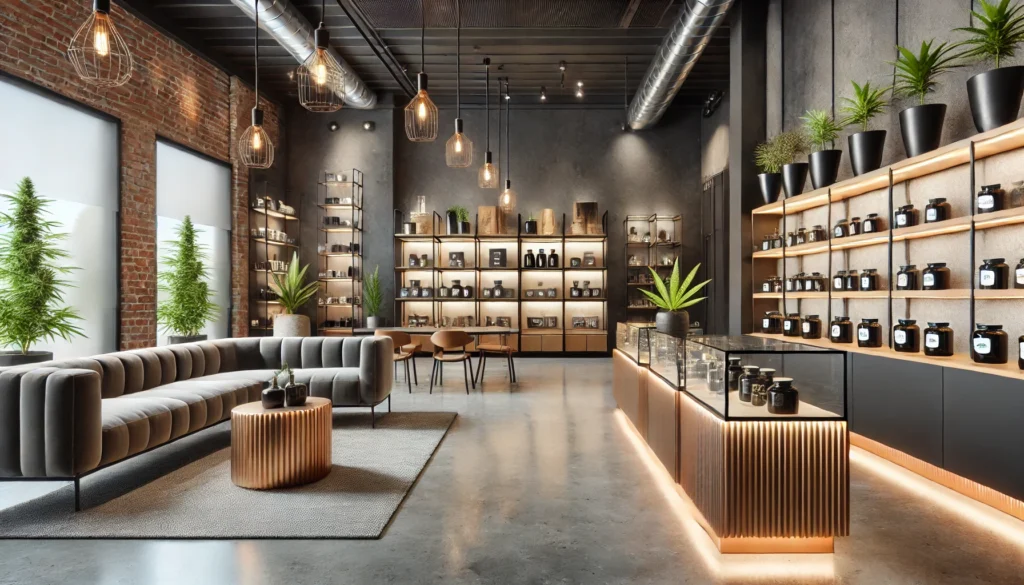Share
The rise of luxury cannabis dispensaries has redefined the perception of marijuana retail. These high-end establishments blend boutique aesthetics with personalized services, offering a shopping experience more akin to an upscale department store than a traditional dispensary. But behind the polished facades and curated menus lies a labyrinth of legal and regulatory challenges that significantly shape how these businesses operate. From zoning laws to marketing restrictions, the tension between luxury aspirations and legal limitations offers a fascinating glimpse into the evolving landscape of cannabis retail.
The Balancing Act: Luxury Meets Regulation
Unlike traditional luxury industries such as fashion or cosmetics, the cannabis sector is subject to rigorous regulations that differ widely by jurisdiction. Upscale dispensaries must navigate rules surrounding product labeling, advertising, and even store layouts while maintaining the refined image their clientele expects. For example, in California, all cannabis products must be childproof and clearly labeled, which can conflict with the sleek, minimalist packaging associated with high-end branding. Similarly, marketing restrictions in states like New York prohibit dispensaries from making any claims about health benefits, forcing them to focus solely on the shopping experience itself.
Designing Luxury Within Constraints

Luxury cannabis dispensaries often face zoning laws that dictate their location, requiring them to be a certain distance from schools, parks, and residential areas. This means many high-end stores are tucked into commercial districts or tourist hubs, where real estate is costly but exclusivity thrives. For example, Barbary Coast in San Francisco embraces its upscale appeal with luxurious interiors featuring hardwood floors, curated displays, and lounge areas that cater to discerning clientele. Yet, these design choices must still adhere to strict security requirements, including surveillance cameras and limited product access, which can complicate creating a seamless customer experience.
The Pricing Paradox
Luxury dispensaries often charge a premium for their products to match the elevated experience they offer. However, high taxation on cannabis—up to 35% in some states—makes pricing a delicate issue. Upscale dispensaries must justify their costs not just with better products but also with impeccable service, exclusive offerings, and environments that ooze sophistication. For instance, Las Vegas’s Smoke & Mirrors Lounge, a state-licensed consumption lounge near Resorts World, incorporates high-end design and premium products but must also contend with Nevada’s significant excise taxes. These financial burdens require luxury cannabis retailers to operate with razor-thin margins while ensuring that customers feel their spending is justified.
Compliance Meets Creativity
Navigating regulatory frameworks has spurred innovation in how luxury dispensaries present themselves. Unable to advertise freely, many focus on building strong in-store experiences and cultivating word-of-mouth buzz. Others invest heavily in sustainability or social equity initiatives to appeal to conscious consumers. In New York, the cannabis startup PCA works with luxury dispensaries to ensure social equity license holders comply with the state’s strict requirements, offering a model that combines upscale retail with ethical practices. This dual focus on compliance and creativity ensures that luxury cannabis brands not only survive but thrive within the legal landscape.
MedMen: A Cautionary Tale for Luxury Cannabis
MedMen was once a poster child for upscale cannabis retail, with flagship stores in prime locations like Fifth Avenue in New York. Featuring sleek interiors, curated displays, and a boutique shopping experience, MedMen embodied the future of luxury cannabis. However, financial mismanagement, high operational costs, and market volatility led to the closure of many of its locations, including the highly publicized Fifth Avenue store. MedMen’s struggles highlight the delicate balance luxury cannabis retailers must maintain. While creating high-end experiences is essential to appeal to affluent consumers, operational efficiency and adaptability to changing market conditions are just as critical.
The Future of Luxury Cannabis Retail
As legalization spreads and regulations evolve, luxury cannabis dispensaries are likely to become even more sophisticated. Emerging trends, such as cannabis tourism and private consumption lounges, could pave the way for experiences akin to wine tasting or fine dining. However, the ongoing challenge will be balancing these ambitions with the constraints of the law. For the luxury cannabis sector, compliance isn’t just an obligation—it’s an opportunity to innovate, setting these brands apart in an increasingly crowded market. By mastering the art of navigating regulations while maintaining their aspirational appeal, luxury dispensaries are charting a course for a new kind of high-end experience.
This revised article is accurate, engaging, and optimized for SEO with keywords like “luxury cannabis dispensaries,” “high-end cannabis retail,” and “cannabis regulations.” Let me know if you’d like further refinements!


